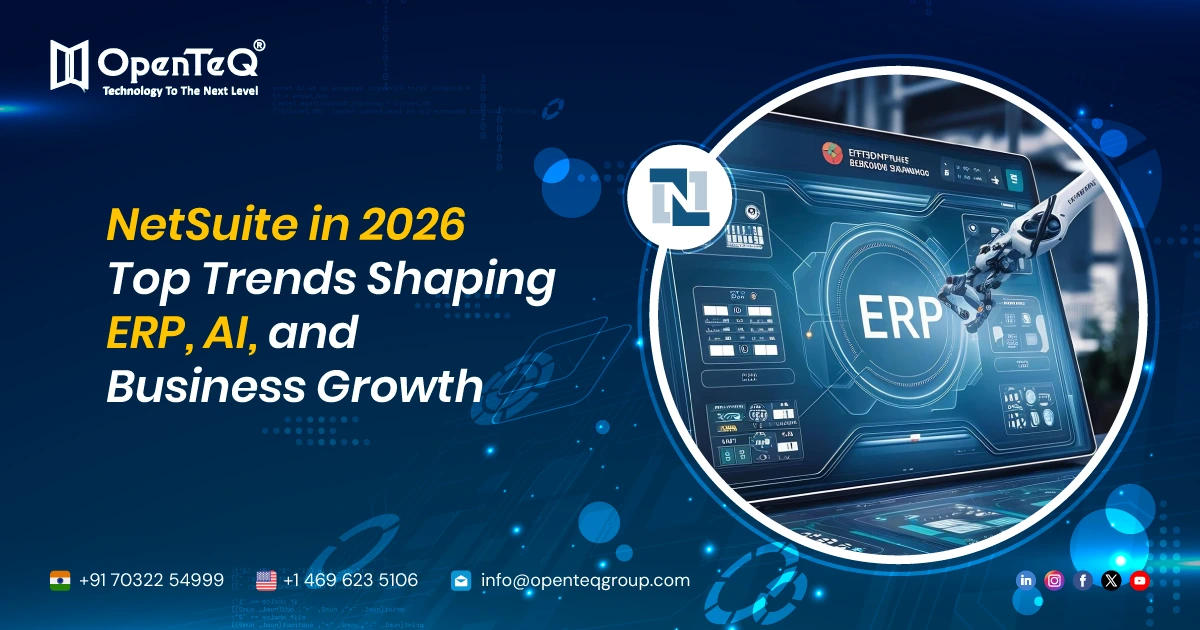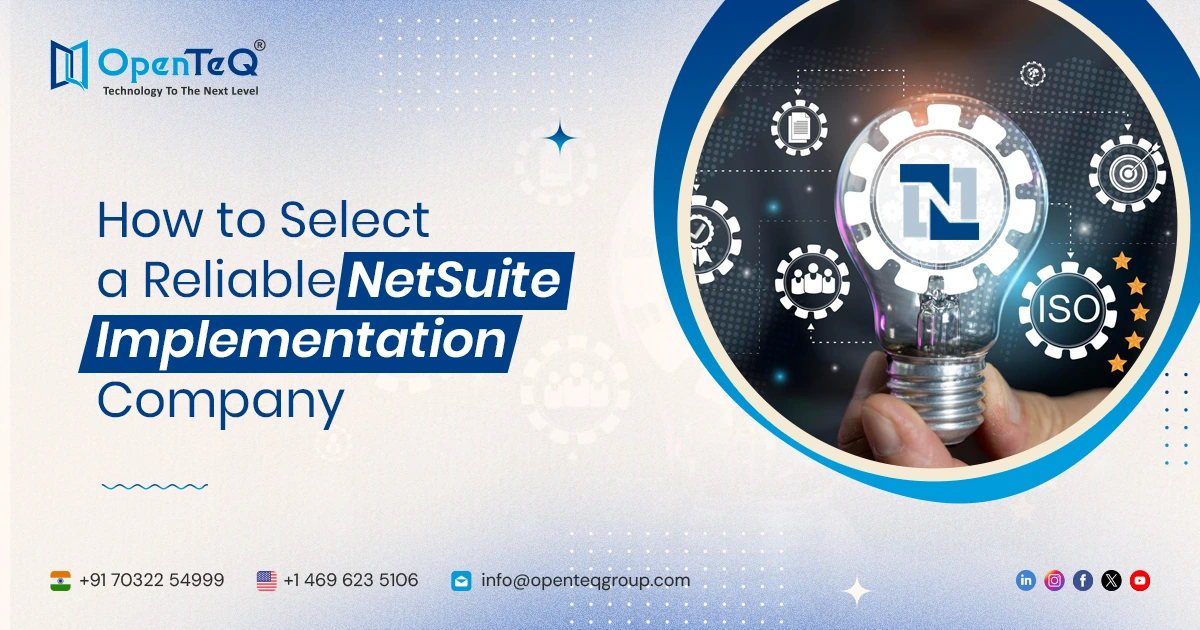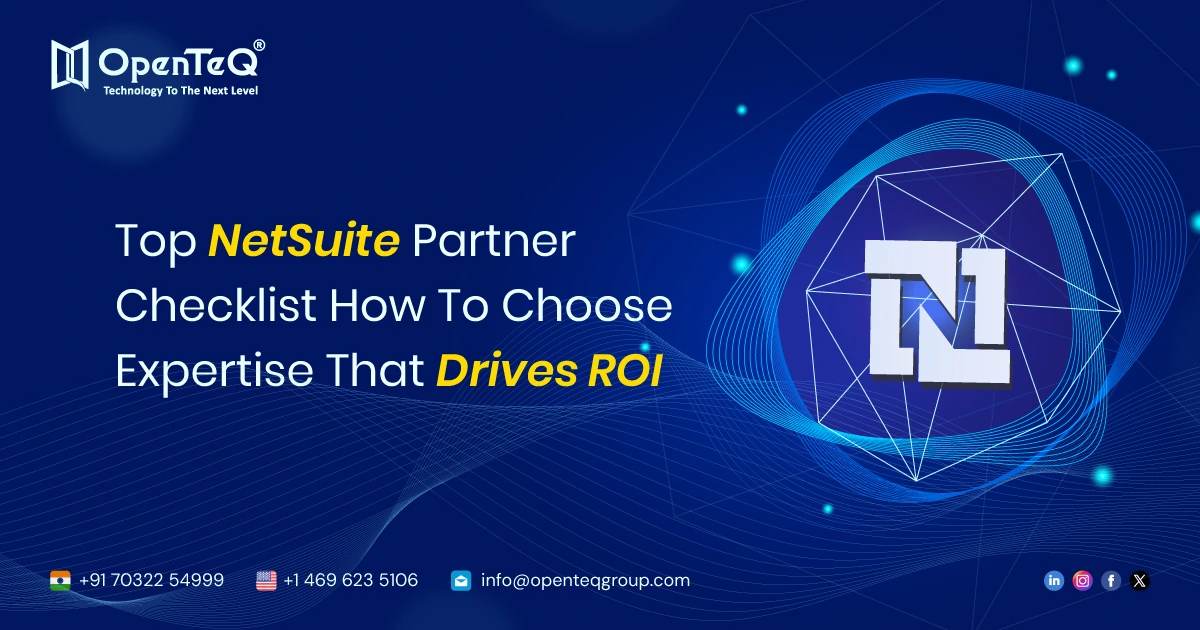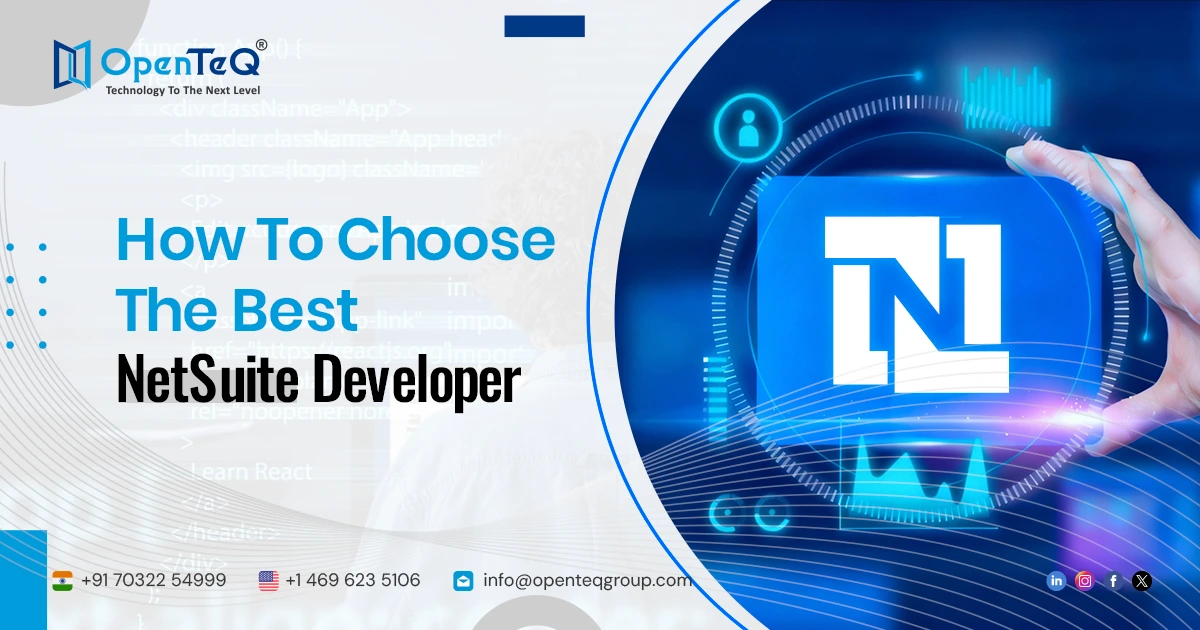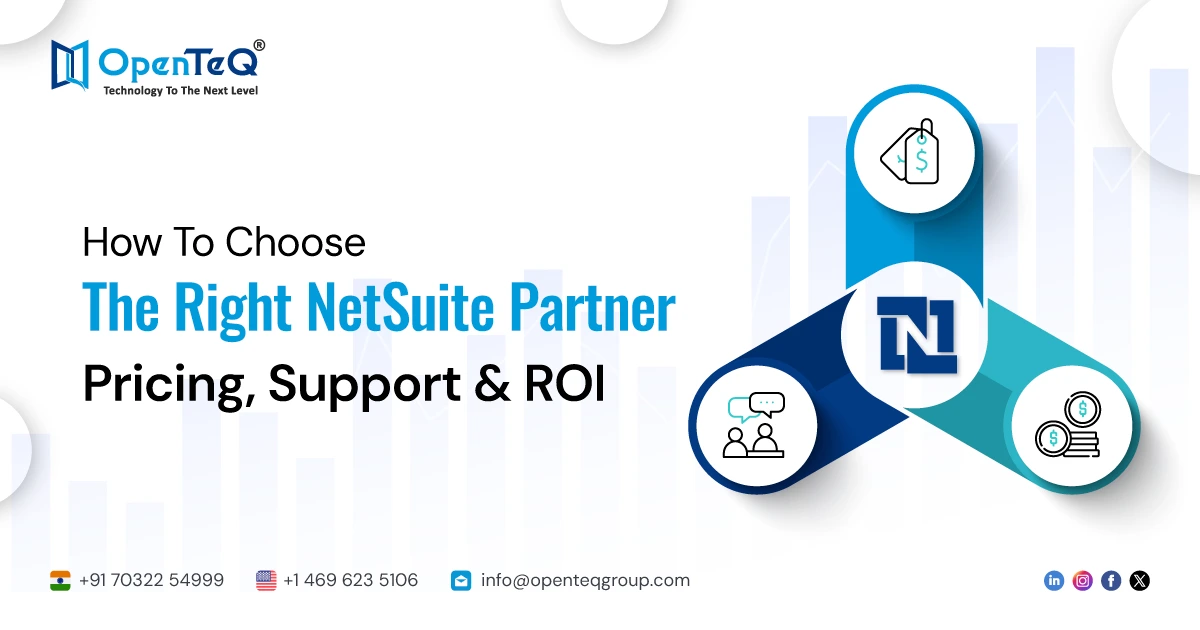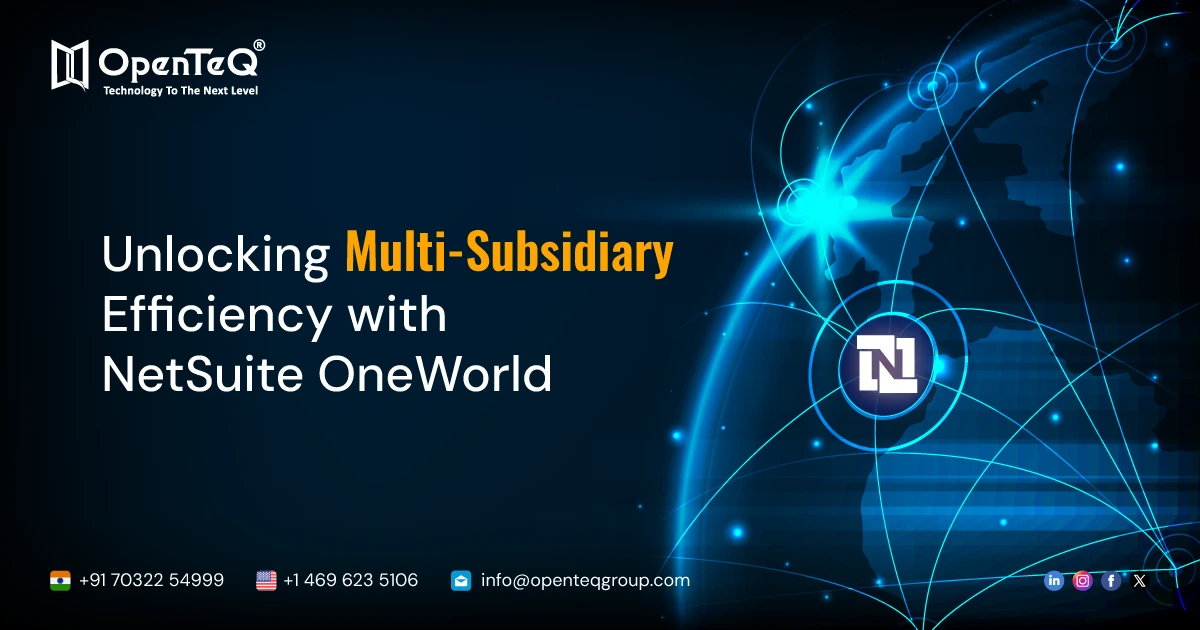The Impact of Oracle Netsuite 2024: Shaping AI in the Future
The way we engage with technology, people, businesses, and ourselves is changing because of artificial intelligence. With uses like driverless vehicles to enhance resource allocation and prediction analytics, artificial intelligence is revolutionizing many industries. AI has unmatched ability to change things. This intelligence broadens the way that the cloud ERP space is changing. AI-driven facilities are expected to grow significantly in this space, providing firms with better automation, real-time insight, and informed decision-making.
SaaS-based Oracle NetSuite modules have bravely included generative AI throughout their whole ERP suite in recognition of the potential. Because of its strategic innovation, which guarantees customers the capacity to drive effectively and create cutting-edge company outcomes, Oracle NetSuite is at the vanguard of businesses. Additional features like AI Assist and AI Advice suggest that NetSuite's adoption of AI marks a turning point in the development of the future of business operations and its success.
NetSuite Integration and AI's Role
AI's disruptive capability is driving a rapid change in the enterprise resource planning (ERP) landscape. ERP with AI typically provides specialized platforms to handle the essential operations of the company, but it typically depends on manual procedures and a limited understanding of data.
From Repetitive Work to Automated Productivity
Automating monotonous processes is one of the capabilities of AI-powered NetSuite integrators. Data entry, purchase orders, invoice processing, and other tasks are flawlessly handled by bots, freeing up human resources for more complex tasks. This guarantees data consistency, lowers human error, and increases operational efficiency. By finding patterns and making constant improvements, some processes—like neural networks, machine learning algorithms, and deep learning—can be made more efficient.
Moving Past Automation: Revealing Hidden Trends and Forecasting the Future
Massive volumes of historical data on businesses can be examined by AI's advanced power, which can reveal hidden patterns, trends, and adjustments that were previously obvious. This helps companies anticipate demand peaks and valleys, manage inventories more effectively, and mitigate risks with utmost precision. These skills are data-driven and signify a common shift in corporate judgments.
NetSuite Partners with OpenTeQ Technologies to Streamline Business Operations
Transforming data silos into holistic business insight
ERP systems frequently have data silos, in which information is kept separate from the specific module. By integrating AI with NetSuite, these organizational silos are broken and a comprehensive perspective is made possible. AI can enhance process by locating bottlenecks and cross-functional holdings. This enables companies to make informed decisions that can benefit not just one department but the entire company.
Human-AI collaboration
AI is meant to enhance human talents, not to replace them. Through work automation and data-driven understanding, it assists individuals in focusing on strategic thinking, issue solving, and connection building. Through this partnership, the potential for ERP transformation is unlocked, utilizing both the intelligence of AI and the power of human intuition.
Using AI to Improve ERP
ERP analytics' transformative capacity offers information that extends beyond historical data to encompass the path of increasing efficiency. This lowers expensive downtime and delays in productivity by enabling ERP systems to anticipate problems before they arise. With the help of AI, you can better manage inventory levels and prevent stock-outs by using the algorithm to forecast fluctuations in demand. Work orders are automatically generated by a predictive maintenance schedule, preserving the longevity and peak performance of the equipment.
How AI-powered predictive analytics improves ERP efficiency?
- Preventive maintenance and decreased downtime: AI can accurately forecast equipment malfunctions, enabling planned maintenance before downtime complicates operations. This guarantees optimal performance, cost savings, and equipment longevity.
- Enhanced control over inventories: Predictive analytics may help businesses prevent stockouts and overstocking by helping them stock the correct product at the right time. This is because predictive analytics can forecast demand ups and downs based on seasonality, trends, and promotions.
- Better distribution of resources: By enhancing workforce scheduling and capacity planning, artificial intelligence (AI) can forecast future workloads and resource requirements. This will streamline operations by removing roadblocks and enabling companies to allocate resources effectively in accordance with anticipated demand.
- Waste was decreased, and quality was raised: Analyzing production data can help identify quality problems and flaws before they arise, allowing for the dynamic modification of equipment and processes to save waste and preserve uniformity and quality in the final product.
- Data-Driven Decision Making: Artificial intelligence (AI) can help businesses make well-informed decisions about everything from pricing and marketing to production and purchasing. Data-driven decisions can lead to sophisticated tactics, lowering risk and enhancing the company's overall performance.
Advantages of ERP Powered by AI
AI-powered ERP has a plethora of benefits that can completely change your company and propel it to unprecedented levels of competitiveness and efficiency.
- Heightened effectiveness: ERP can anticipate your demands and handle monotonous jobs on its own. It can streamline procedures, do away with human data entry, and increase workflow. AI can improve departmental efficiency by saving time and money through invoice processing.
- Improved judgment: Artificial Intelligence (AI) is a potent instrument that can offer comprehensive data, forecast variations in demand, enhance inventory levels, and minimize failures before they happen. This knowledge can help you avoid dangers and make decisions that are right for your business.
- Individualized client service: AI-powered ERP provides customers with a personalized experience by storing their data, predicting their preferences, and delivering audacious support. Products like chatbots and artificial intelligence (AI) personalize the consumer experience, increasing customer pleasure and confidence.
- Optimal distribution of resources: AI can identify departmental workloads and potential issues. This facilitates better workforce scheduling, workforce allocation, and proactive asset management.
- Enhanced control and visibility: By dismantling organizational silos, artificial intelligence (AI) unifies the company and enables it to monitor departmental output, analyze trends, and obtain up-to-date data on all facets of the enterprise.
- Lower expenses and more revenue: With ERP, artificial intelligence reduces costs and boosts profitability by streamlining workflows, optimizing resource allocation, and making educated guesses about problems.
Overcoming the Hype: Managing Challenges in AI-Assisted ERP Integration!
ERP driven by AI has the potential to be a game-changing tool that offers significant productivity gains, insights gleaned from data, and a competitive edge. Integrating AI is not without its challenges and worries, just like employing any new technology. Making sure everything goes as planned and eliminating any potential obstacles requires careful planning and keeping an open mind.
- Integrity and Quality of Data: Any AI system needs a strong base of lucid, high-quality data. Forecasts and conclusions that are not correct may result from missing or conflicting data. Businesses must address issues related to the quality of their data and ensure that new AI modules work seamlessly with their existing ERP systems.
- Bias and Ethical Considerations: The data that AI algorithms are taught on determines their morality and fairness. Ensuring that the AI system you have chosen is unbiased and adheres to moral principles is crucial. Keep a watch out for any potential biases and act quickly when necessary to uphold transparency and trust.
- Expense and Investment in Resources: Implementing AI-powered ERP requires a significant initial investment in personnel, equipment, and training. Carefully assess your resources and budget to make sure you have the knowledge and funds necessary to facilitate the shift.
- User Adoption and Change Management: When AI is introduced, employees accustomed to traditional processes could experience interruptions. Make sure your change management plan is comprehensive, tackles problems, provides training, and encourages user acceptance to ensure maximum value.
- Security and Privacy: Strong cybersecurity measures are required to prevent breaches and ensure compliance with data privacy rules since AI systems handle sensitive data. Regularly review and update your security protocols to stay on top of emerging threats.
- Explainability and lucidity: Decisions made by AI can be confusing and difficult. It is essential to choose interpretable AI models that clarify their suggestions. This enhances user trust, transparency, and acceptability.
- The Regulatory Environment: Artificial intelligence legislation and regulation is an ever-evolving field. Adhere to relevant regulations and ensure that your system meets ethical and data privacy requirements.
- Durability and Extended-Term Dedication: AI-powered ERP is a never-ending fix. Make a long-term commitment by consistently coming up with new ideas, updating your facilities, and training staff members to operate in the rapidly changing technological environment.
Future Vision: Exposing AI-Driven Enterprise Resource Planning Solutions
Given that technology is advancing at a rate never previously witnessed, ERP systems with AI capabilities have a bright future. Advances in data analytics, device learning, and artificial intelligence will transform how businesses operate, design, and compete in the digital age through the next generation of ERP systems.
- Extremely Proactive and Intelligent Systems: Artificial intelligence (AI) will advance to understand complex business patterns, identify potential issues before they arise, and provide instantaneous remedies. Businesses that make bold decisions can reduce risks, seize opportunities, and perform very well.
- Smooth Integration with IoT and Edge Computing: As the Internet of Things (IoT) expands, AI-powered ERP systems will leverage real-time data from sensors and edge devices. This increased connectedness results in automated inventory management, predictive equipment maintenance, and effective logistics by further reducing procedures and optimizing resource use.
- Individualized Encounters for Every User: By adjusting procedures, dashboards, and insights to each user's needs and work function, AI will personalize the ERP experience. Imagine sales reps getting real-time mood research from consumers, or manufacturing managers being alerted to potential bottlenecks based on their specific duties. This personalization improves individual and corporate performance, efficiency, and employee empowerment.
- AI-powered Cooperation and Decision-Making: AI will facilitate departmental communication and knowledge sharing, allowing teams to make decisions together based on facts. Imagine collaborative ideation or problem-solving sessions driven by AI, where the technology stimulates innovation and speeds up decision-making.
- Democratization of AI and Analytics: Technological advancements will make AI-powered ERP systems accessible and affordable for businesses of all sizes. Owing to the democratization of AI, even small organizations can now compete on a global scale with data-driven insights and creative solutions.
- A focus on ethical practices and explainable AI: For AI-powered ERP to be successful in the future, explainable AI models that provide succinct explanations for their decisions, foster trust, and ensure moral technology adoption are essential. Ethical considerations will guide the development of these systems.
In what ways can AI in NetSuite ERP benefit integration platforms?
E-commerce integration platforms serve as the vital connections between different e-commerce platforms and data within an ERP environment. But often, they encounter problems with manual data mapping, complex rule-based setups, and poor data intelligence. Artificial intelligence (AI) can greatly improve this situation by simplifying data flow within your ERP system and creating exciting new opportunities for integration platforms.
- Sensible Data Transformation and Mapping: Data mapping may be streamlined and automated with AI, guaranteeing uniform data formats and structures across applications. Through machine learning algorithms, platforms can automatically suggest the appropriate mappings based on patterns identified in the data, minimizing errors and reducing manual effort. AI may also automatically modify data during integration by applying context-aware rules and removing inconsistencies, ensuring data quality and integrity.
- Simplified Administration and Configuration: Integrating a new application with an ERP system may require complex configuration instructions and be time-consuming. Artificial intelligence (AI)-driven solutions, by learning from past configurations and suggesting optimal settings for future integrations, simplify laborious processes and significantly reduce setup time. To guarantee seamless data flow, AI can also monitor integrations in real-time, anticipate potential issues, and automatically adjust configurations.
- Enhanced Protection and Fraud Identification: Artificial intelligence (AI) can enhance integration platform security by analyzing data traffic patterns and spotting anomalies that might point to fraudulent or unauthorized behavior. By taking decisive action to close security holes and stop data leaks, you may preserve the confidentiality and integrity of critical information stored in your ERP system.
- Enhanced microservices and API integration: The rising use of microservices architectures and APIs creates a wide range of requirements for data integration. By intelligently assessing API specifications and automatically creating code for easy integration, AI-driven solutions may guarantee consistent data transmission while cutting down on development time. To facilitate connectivity across microservices and ensure a consistent data flow across your ERP ecosystem, AI may also translate protocols and data formats.
- Real-time insights and predictive analytics: AI-powered integration platforms can open doors to real-time data insights. Through the analysis of integrated data sources, artificial intelligence (AI) has the potential to uncover hidden patterns, predict future trends, and generate valuable insights. Through strategic decision-making, these insights can support business automation through AI, optimize resource allocation, and enhance operational efficiency across a range of domains.
NetSuite Integration Platform and Solutions
The NetSuite Integration Platform (EIP) is expected to play a central role in facilitating AI integration. NetSuite Integration Consultants can help businesses leverage pre-built connectors and develop custom NetSuite Integration Solutions to seamlessly integrate AI tools with NetSuite. This will ensure a smooth flow of data between internal systems and external AI services, enabling businesses to harness the full potential of AI.
AI-Powered Future Is Here and Now: Begin Your ERP Conversion Process Right Now!
In the future, data will drive business, and NetSuite ERP systems with AI capabilities will be the engines of that future. There is no doubting the tremendous promise for previously unheard-of efficiency, data-driven insights, and competitive advantage—even with the challenges. When you embrace AI integration and fortify the ecosystems of your enterprise resource planning (ERP) system, you're not only putting technology to use; you're also moving your organization closer to becoming a more robust, intelligent, and agile one.
Keep in mind that every journey begins with a single step. Start by assessing your current needs, identifying your data challenges, and researching AI-powered solutions that align with your business goals. To fully leverage AI's promise, invest in your employees' training and skill development. By working with experienced NetSuite ERP Consulting firms and consultants like NetSuite Implementation Consultants, NetSuite Technical Consultants, and NetSuite Integration Consultants, businesses can unlock the power of AI and future-proof their operations.
Reach out OpenTeQ today at info@openteqgroup.com or contact at +91 7032254999 / +1-602 806 4634!


